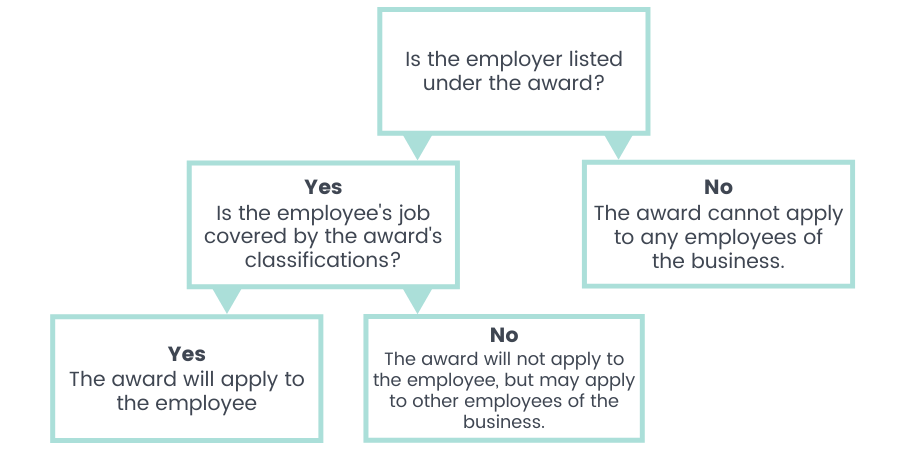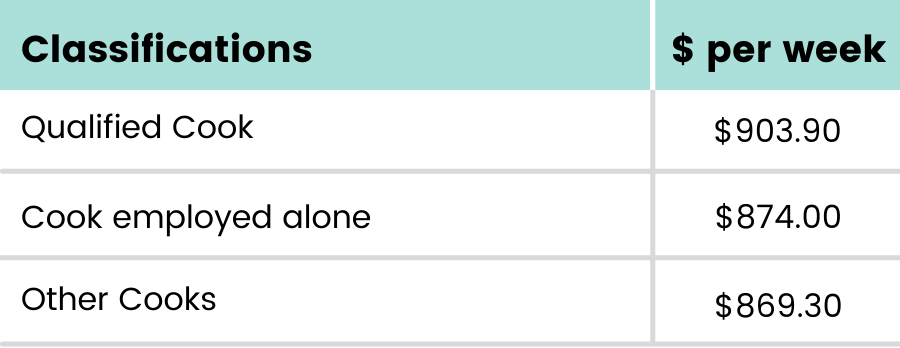Classifications under the WA awards
Once you have identified the WA award that applies to your business, the next steps are to determine:

Which of your employees are covered by the WA award

What classification applies to each of your employees covered by the WA award
Identifying the appropriate classification for each of your employees covered by a WA award is essential for ensuring that you are paying them the correct rate of pay. Significant underpayments can occur if an employee is not assigned a classification or is incorrectly classified.
There are also civil penalties applicable under the IR Act if an employer fails to keep a record of an employee's classification when they are covered by an award.
What is a classification?
An employee’s classification is effectively their job. An employee’s job is the collection of duties that they perform.
Is my employee covered by the WA award that covers my business?
An employee will be covered by an award which applies to the business if their job is included within the classifications that the award covers. An award will not apply to an employee if their job does not appear in the award’s classifications
Where do I find the classifications?
Not all WA awards will use the word “classification” – the Fast Food Outlets Award 1990 in the example above uses the expression of “calling or callings”.
Since an employee’s classification determines what an employee is entitled to be paid, the easiest way to find the applicable classification is in the “minimum wages” clause of most WA awards, as this will explain what each classification is to be paid.
How do I identify an employee's classification?
A WA award will typically define at least some, if not all, of the classifications so that employers can identify which employees fall within it.
This might be found in the “Definitions” clause, or included in the “Wages” clause itself.
Sometimes a WA award will only define some classifications, in which case you may have to consider the “ordinary meaning” of the words in the classification or whether the role title has any particular industrial meaning. In such cases, you should contact Wageline or obtain legal advice rather than trying to guess the correct classification on your own.
What happens if someone falls within more than one classification?
It is not uncommon for an employee to straddle two or more classifications; for example, a waiter who also acts as a cashier.
In this circumstance, the question to be answered is: what is the primary purpose of their employment?
Generally, the “primary purpose” of a person’s employment is determined by what they spend most of their time doing. A waiter who spends 90% of their time performing the duties of a waiter, and 10% of their time performing the duties of a cashier, will generally be classified as a waiter.
However, where the employee’s duties are nearer a 50-50 distribution between classifications, it can become harder to categorise them into a specific classification. In such cases, you should contact Wageline or obtain legal advice.
What if an employee temporarily performs duties at a higher classification?
Many WA awards allow for employees to be paid the rate of the higher classification when they perform the duties of that role, often called a “higher duties allowance” or a “higher duties rate”. It is important to pay attention to the terms of the particular award to see if this applies and how it works.
Can an employee’s classification change?
Yes. An employee’s classification can change either deliberately (e.g. by a promotion) or by practice.
An employee’s classification may change “by practice” if they spend the majority of the time performing duties other than in their usual role.
What happens if an employee does not fall within a classification?
If an employee does not fall within the classification of a particular WA award, one of two things can happen:
- they could be covered by another award (an occupational award); or
- they could be award/agreement free.
You can compare the differences below.





